 the tone of the album. Up until now, the album is arguably dominated by young Pink's naïvete as he grows (or at least tries to grow) into the life handed to him at birth. Even the cynically didactic tones of "In the Flesh?" and "the Thin Ice" are counterbalanced by a certain paternal, instructional quality. Beneath the gravity of the previous songs lurked a sense of exploring, of seeking self and searching for one's place in the world no matter how misguided that search might be. While songs like "What Shall We Do Now?" and "Young Lust" portray Pink as exploring the physical pleasures of life, they portray searches nonetheless that insinuate the desire to grow. Even the carnality of "Young Lust" is embedded within a certain sexual innocence, a feeling of sensual discovery and exploration. As we shall see, though, "One of My Turns" is the brick wall, so to speak, against which the naïve explorations of self and the world crash.
the tone of the album. Up until now, the album is arguably dominated by young Pink's naïvete as he grows (or at least tries to grow) into the life handed to him at birth. Even the cynically didactic tones of "In the Flesh?" and "the Thin Ice" are counterbalanced by a certain paternal, instructional quality. Beneath the gravity of the previous songs lurked a sense of exploring, of seeking self and searching for one's place in the world no matter how misguided that search might be. While songs like "What Shall We Do Now?" and "Young Lust" portray Pink as exploring the physical pleasures of life, they portray searches nonetheless that insinuate the desire to grow. Even the carnality of "Young Lust" is embedded within a certain sexual innocence, a feeling of sensual discovery and exploration. As we shall see, though, "One of My Turns" is the brick wall, so to speak, against which the naïve explorations of self and the world crash. Following the young groupie's quasi-theatrical ramblings concerning Pink's hotel room, Pink lapses into a trance-like state of personal reflection sparked by the recognition of his wife's infidelity as well as his inability to connect with the young girl he's brought to his hotel. While the song's later lyrics are seemingly addressed to the terrified fan, it is usually believed that Pink is mentally addressing his wife in the
 song's calm first half. In his 1979 interview with Roger Waters, interviewer T. Vance described Pink at this stage of the album as a man who has "got everything but nothing;" he's got the celebrity status that most people can only dream of, adoring fans, expensive possessions, every worldly object that he could desire. However he takes for granted what should be the most important thing in his life, a personal connection with his wife, the importance of which he only realizes once that love has been taken away. Yet even then he is blind to his own accountability in driving his wife to infidelity, instead turning his ire on what he sees as the fickleness of love and life. Just as he sees everything in his life, Pink views the very connection that could have been his salvation as another personal betrayal, a relationship that decays and ultimately causes mental distress which in turn contributes another brick to the wall. For Pink, this decay is unavoidable: comparing the degeneration of love to the decomposition of a "dying man" and other natural processes (growing "older" and "colder") dispels any personal blame that Pink might have felt. In his mind, everything in this world will decay and at length cause more harm than good. These ideas of degeneration are further implanted with the abundance of imagery concerning death and violence; the grayness of love like a dying man's skin; aging and becoming more inert, more unfeeling; comparing his feelings to a "razor blade," a "tourniquet," and a "funeral drum." These last three
song's calm first half. In his 1979 interview with Roger Waters, interviewer T. Vance described Pink at this stage of the album as a man who has "got everything but nothing;" he's got the celebrity status that most people can only dream of, adoring fans, expensive possessions, every worldly object that he could desire. However he takes for granted what should be the most important thing in his life, a personal connection with his wife, the importance of which he only realizes once that love has been taken away. Yet even then he is blind to his own accountability in driving his wife to infidelity, instead turning his ire on what he sees as the fickleness of love and life. Just as he sees everything in his life, Pink views the very connection that could have been his salvation as another personal betrayal, a relationship that decays and ultimately causes mental distress which in turn contributes another brick to the wall. For Pink, this decay is unavoidable: comparing the degeneration of love to the decomposition of a "dying man" and other natural processes (growing "older" and "colder") dispels any personal blame that Pink might have felt. In his mind, everything in this world will decay and at length cause more harm than good. These ideas of degeneration are further implanted with the abundance of imagery concerning death and violence; the grayness of love like a dying man's skin; aging and becoming more inert, more unfeeling; comparing his feelings to a "razor blade," a "tourniquet," and a "funeral drum." These last three  similes possibly act as allusions as well; the "razor blade" could very well insinuate Pink's later turns to violence not only in the song but also during his Hitler-esque phase (and quite possibly alludes to his near-suicide in the song "the Final Cut"); the "tourniquet" suggests Pink's current drug use as well as later injections ("Comfortably Numb") that cause him to undergo another metamorphosis; finally, the mentioning of the "funeral drum" foreshadows his metaphorical death as he retreats completely behind his wall. Perfectly mirroring the transitory moment before Pink's eruption, the tourniquet and funeral drum also carry with them the notions of being stretched almost to the breaking point. A tourniquet is drawn tight around a limb in order to hinder briefly the flow of blood through an artery (possibly symbolizing the cessation of Pink's feelings and emotions) while the head of a drum must be drawn tight in order for sound to resonate throughout the hollow body (symbolizing Pink's shallow persona). In both instances, the imagery of being stretched so tightly prepares the audience for what must surely come soon: the breaking point.
similes possibly act as allusions as well; the "razor blade" could very well insinuate Pink's later turns to violence not only in the song but also during his Hitler-esque phase (and quite possibly alludes to his near-suicide in the song "the Final Cut"); the "tourniquet" suggests Pink's current drug use as well as later injections ("Comfortably Numb") that cause him to undergo another metamorphosis; finally, the mentioning of the "funeral drum" foreshadows his metaphorical death as he retreats completely behind his wall. Perfectly mirroring the transitory moment before Pink's eruption, the tourniquet and funeral drum also carry with them the notions of being stretched almost to the breaking point. A tourniquet is drawn tight around a limb in order to hinder briefly the flow of blood through an artery (possibly symbolizing the cessation of Pink's feelings and emotions) while the head of a drum must be drawn tight in order for sound to resonate throughout the hollow body (symbolizing Pink's shallow persona). In both instances, the imagery of being stretched so tightly prepares the audience for what must surely come soon: the breaking point.Because of his own shallowness (which Pink does not recognize) and the shallowness of the groupie (which he denunciates hypocritically), Pink's emotional breakdown bursts into musical life after a stretching crescendo. In an instant, he turns on the terrified groupie because she represents the very superficial life that he had invested
 so much in but that he simultaneously denies. Upon entering his hotel room, the groupie is overcome by the room's size, the amount of guitars he has lying around, concerning herself with his possessions rather than with connecting with Pink on a personal level. Yet it is Pink who brought the girl back to his room most likely with the intention of having sex with her; it is Pink who bought all the guitars and expensive possessions; it is Pink who invested his faith in the superficiality of the world, in the list of things from "What Shall We Do Now?" However it is also Pink who cannot resolve or possibly comprehend the duality of his own character, his desire for love and a personal connection yet also his desire for life's material and sensual pleasures. But rather than take the blame and attempt to explicate his own persona, Pink blames his wife in the first half of the song for his inability to connect through love. Likewise, he blames the groupie in the song's second half for his inability to completely satiate himself with the excesses of celebrity. In both cases, he's really attacking himself and his own inadequacies and his own beliefs without truly knowing it.
so much in but that he simultaneously denies. Upon entering his hotel room, the groupie is overcome by the room's size, the amount of guitars he has lying around, concerning herself with his possessions rather than with connecting with Pink on a personal level. Yet it is Pink who brought the girl back to his room most likely with the intention of having sex with her; it is Pink who bought all the guitars and expensive possessions; it is Pink who invested his faith in the superficiality of the world, in the list of things from "What Shall We Do Now?" However it is also Pink who cannot resolve or possibly comprehend the duality of his own character, his desire for love and a personal connection yet also his desire for life's material and sensual pleasures. But rather than take the blame and attempt to explicate his own persona, Pink blames his wife in the first half of the song for his inability to connect through love. Likewise, he blames the groupie in the song's second half for his inability to completely satiate himself with the excesses of celebrity. In both cases, he's really attacking himself and his own inadequacies and his own beliefs without truly knowing it.Once the dam has been broken the roiling undercurrent of emotion gushes out. Yet the lyrics suggest that this isn't the first time Pink's emotions have erupted, nor is it the last for it is "just a passing phase," insinuating that it's happened before (see the interpretation of the guitar solo in "Mother" for another of Pink's "turns"). From here, Pink cynically addresses the groupie in a sarcastic response of sorts to her earlier questions, this time asking her if she'd like to "watch TV, or get between the sheets, or contemplate the silent freeways," covering a range of possibilities that could be used to pass the time and feign a personal connection. The lyrics are fairly self-explanatory though must be taken with a grain of salt. Does Pink really have an ax in his suitcase? Does he
 really think he can fly? It must be remembered that these things are sung in a specific context and so are most likely reflections of Pink's instability and the emotions that come with that mental state. What better way to show Pink's violent outburst and mental deterioration than to have him calling for his "favorite ax," a statement that's both unsettling and darkly humorous in its very absurdity. During the song, Pink is almost completely out of his mind and so it becomes increasingly difficult to separate narrative fact from fantasy, to separate the telling of a chronological narrative from the poetic use of images and phrases to suggest emotional states of mind. It is also interesting to note that in rock terminology, an "ax" is a slang word for a guitar, creating more ambiguity in Pink's lyrical ravings. However you personally interpret the lyrics, whether literal or darkly humorous, there is little doubt that Pink's relationship with the groupie ends just as all of his relationships seemingly end, at least in his mind: Pink is left alone, alienated once more from the world, a situation that lends itself to two different renderings of the song's last line. By one theory, Pink is being heartfelt when he shouts "why are you running away," hinting at both his obliviousness as well as the inherent need to realize why every relationship in his life ends with one outcome. Another view purports that the line is utterly sarcastic with Pink deriding the departing groupie, cognizant of his perpetual alienation and not surprised that yet another attempt at personal connection has failed.
really think he can fly? It must be remembered that these things are sung in a specific context and so are most likely reflections of Pink's instability and the emotions that come with that mental state. What better way to show Pink's violent outburst and mental deterioration than to have him calling for his "favorite ax," a statement that's both unsettling and darkly humorous in its very absurdity. During the song, Pink is almost completely out of his mind and so it becomes increasingly difficult to separate narrative fact from fantasy, to separate the telling of a chronological narrative from the poetic use of images and phrases to suggest emotional states of mind. It is also interesting to note that in rock terminology, an "ax" is a slang word for a guitar, creating more ambiguity in Pink's lyrical ravings. However you personally interpret the lyrics, whether literal or darkly humorous, there is little doubt that Pink's relationship with the groupie ends just as all of his relationships seemingly end, at least in his mind: Pink is left alone, alienated once more from the world, a situation that lends itself to two different renderings of the song's last line. By one theory, Pink is being heartfelt when he shouts "why are you running away," hinting at both his obliviousness as well as the inherent need to realize why every relationship in his life ends with one outcome. Another view purports that the line is utterly sarcastic with Pink deriding the departing groupie, cognizant of his perpetual alienation and not surprised that yet another attempt at personal connection has failed.  There is little that needs to be said in terms of movie analysis considering that the film basically follows the narrative of the song's lyrics with the camera jostling through the scene as Pink destroys his hotel room while the unprepared groupie hides in whatever nook or cranny she can find. Steve Jasper wrote in and revealed that the television is playing an old WWII movie called "The Dambusters." Jasper writes, "The Dambusters' is essentially a biopic of Barnes Wallis, the bloke who designed the bouncing bomb. This was dropped by bombers onto German reservoirs where it bounced along the surface of the water and then slowly sank to the bottom of the dam wall where it would explode, breaching the dam and flooding the valley, causing all the factories to flood as well and thus halt the German steel production necessary for the war effort. In the Wall film, 'Dambusters' is on one of the channels on the telly all the way through the sequence with the TV in it. It's a war film all about blowing up walls." Quite fitting for "The Wall" though its inclusion at this part in the movie is more ironic than reflective being that Pink is still concerned with building rather than destroying his own wall. Also note that Pink destroys the TV first before erupting into the other rooms, possibly hinting at his subconscious repression of anything that grows too painful, that reminds him of his bruised past such as, in this incident, the death of his father. "The Dambusters'" inclusion is made further ironic in that, if anything, Pink's latest "turn" probably coupled with or sparked by the remembrance of his father in WWII acts as a catalyst for his inner wall's culmination. If anything, his "turn" causes him to regress behind his wall and continue building at an alarming rate. In what might be yet another act of symbolic repression, Pink ends the song in the film by throwing the television out of the window
There is little that needs to be said in terms of movie analysis considering that the film basically follows the narrative of the song's lyrics with the camera jostling through the scene as Pink destroys his hotel room while the unprepared groupie hides in whatever nook or cranny she can find. Steve Jasper wrote in and revealed that the television is playing an old WWII movie called "The Dambusters." Jasper writes, "The Dambusters' is essentially a biopic of Barnes Wallis, the bloke who designed the bouncing bomb. This was dropped by bombers onto German reservoirs where it bounced along the surface of the water and then slowly sank to the bottom of the dam wall where it would explode, breaching the dam and flooding the valley, causing all the factories to flood as well and thus halt the German steel production necessary for the war effort. In the Wall film, 'Dambusters' is on one of the channels on the telly all the way through the sequence with the TV in it. It's a war film all about blowing up walls." Quite fitting for "The Wall" though its inclusion at this part in the movie is more ironic than reflective being that Pink is still concerned with building rather than destroying his own wall. Also note that Pink destroys the TV first before erupting into the other rooms, possibly hinting at his subconscious repression of anything that grows too painful, that reminds him of his bruised past such as, in this incident, the death of his father. "The Dambusters'" inclusion is made further ironic in that, if anything, Pink's latest "turn" probably coupled with or sparked by the remembrance of his father in WWII acts as a catalyst for his inner wall's culmination. If anything, his "turn" causes him to regress behind his wall and continue building at an alarming rate. In what might be yet another act of symbolic repression, Pink ends the song in the film by throwing the television out of the window and screaming, "take that, fuckers," the very intonation of which hints at his fractured world view in which he envisions all of society against him. After all, every relationship he tries to produce eventually ends with him being ostracized, or so it seems through the clouded, unseeing eyes of our unbalanced protagonist.
and screaming, "take that, fuckers," the very intonation of which hints at his fractured world view in which he envisions all of society against him. After all, every relationship he tries to produce eventually ends with him being ostracized, or so it seems through the clouded, unseeing eyes of our unbalanced protagonist.http://www.thewallanalysis.com/turns.html


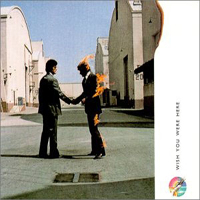
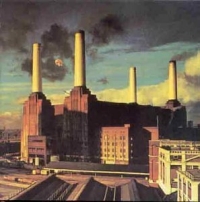


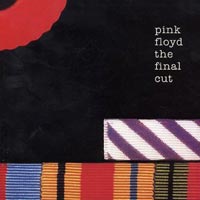

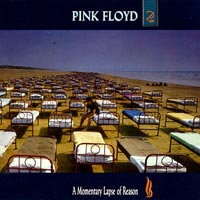

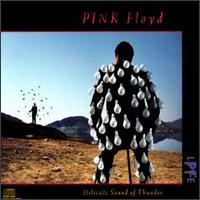
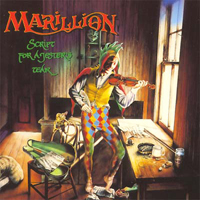
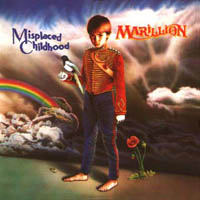
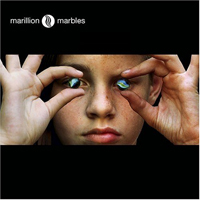
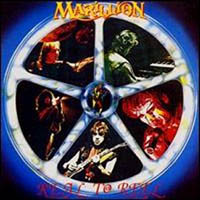
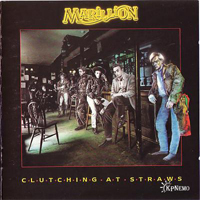




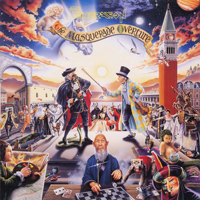
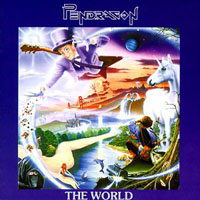
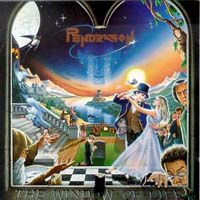
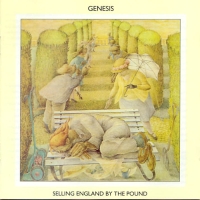
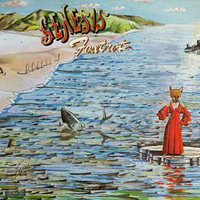
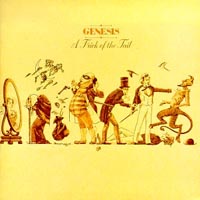
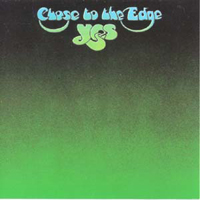
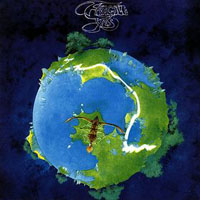
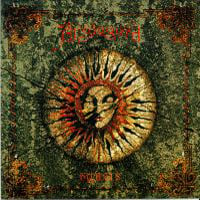


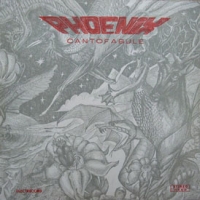
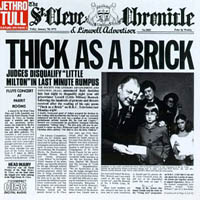
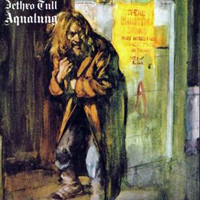

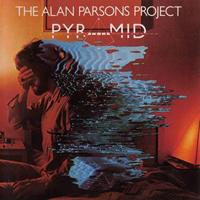
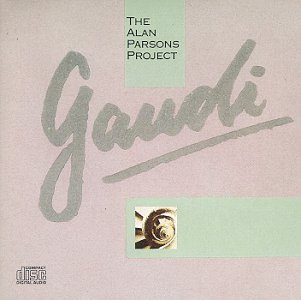
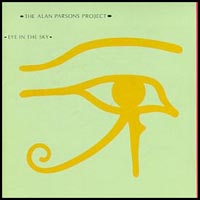


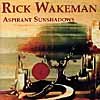
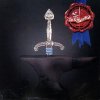
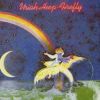





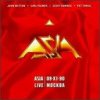












Niciun comentariu:
Trimiteți un comentariu